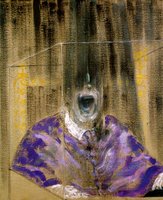"Ein idealer Gatte" im Schauspielhaus Bochum
Ein idealer Gatte
Premiere am 25. Februar um 19.30 Uhr im Schauspielhaus Bochum
Bild: Joseph Gallus Rittenberg - Sebastian Koch als Lord Goring
Pressemitteilung
Wildes Sittenkomödie "Ein idealer Gatte" hatte am Samstag Premiere im Schauspielhaus Bochum
Oscar Wilde
Ein idealer Gatte
Deutsch von Armin Holz und Richard Gardner
Regie: Armin Holz
Bühne: Heike van Bentum und Armin Holz
Kostüme: Esther Walz
Musik: Philipp Weiss
Premiere am 25. Februar 2006, 19.30 Uhr, Schauspielhaus
Weitere Vorstellung im Februar: 27.02. (19.30 Uhr)
Vorstellungen im März: 04.03. (19.30 Uhr), 07.03. (19.30 Uhr), 11.03. (19.30 Uhr),
23.03. (19.30 Uhr), 24.03. (19.30 Uhr), 30.03. (19.30 Uhr), 31.03. (19.30 Uhr)
Lord Caversham Hans Diehl
Lord Goring Sebastian Koch
Sir Robert Chiltern Markus Boysen
Vicomte de Nanjac Michael Lippold
Mr. Montford Jaschar Sarabtchian
Mason/Phipps/James Cornelius Schwalm
Lady Chiltern Imogen Kogge
Lady Markby Margit Carstensen
Lady Basildon Josefin Platt
Mrs. Marchmont Veronika Nickl
Miss Mabel Chiltern Claude De Demo
Mrs. Cheveley Jeanette Hain
"Es ist eine geistreiche und ironische Sittenkomödie", sagt Armin Holz über das Stück "Ein idealer Gatte", mit dessen Inszenierung sich der Regisseur am Samstag, den 25.02.06 in Bochum vorstellen wird. Seit August 2005 ist Holz Hausregisseur und Mitglied der Künstlerischen Leitung des Schauspielhaus Bochum. Nach seiner ersten Inszenierung "Bunbury" – seiner Abschlussarbeit an der Münchner Otto-Falckenberg-Schule 1988 – und "Salome" – einer Eigenproduktion, die er 2003 in der Probebühne Cuvrystraße in Berlin realisierte – setzt er in Bochum seinen dritten Oscar Wilde in Szene. "Das Stück habe ich schon lange mit mir herumgetragen", meinte Holz zu Probenbeginn. Was ihn besonders an Wilde reizt, ist seine Eleganz, sind seine Pointen, die mitten ins Leben hineintreffen, ist seine unglaubliche Kenntnis des Lebens, seine große Liebe zum Leben gepaart mit Bitterkeit und Sarkasmus. Für seine Bochumer Inszenierung hat Holz zusammen mit Richard Gardner "An Ideal Husband" neu übersetzt.
Oscar Wilde zeigt in "Ein idealer Gatte" die Divergenz zwischen Schein und Sein in den Denk- und Verhaltensmustern der Viktorianischen Ära und enthüllt die Fadenscheinigkeit eines Gesellschaftskodex mit all seinen Normen, Rollenspielen und Illusionen. Er beweist mit diesem Stück einen trefflich scharfen und stechenden Blick auf gesellschaftliche Zwänge und bigotte Moralvorstellungen nicht nur seiner Zeit. Uraufgeführt wurde "An Ideal Husband" am 3. Januar 1895 im Theatre Royal Haymarket in London.
Dreh- und Angelpunkt der Handlung sind verhängnisvolle Affären: Die intrigante Mrs. Cheveley erpresst den aufstrebenden Unterstaatssekretär Sir Robert Chiltern mit einem Brief aus dessen Vergangenheit. Sie weiß, dass seine Karriere einst mit einem Insidergeschäft begann und droht nun, ihr Wissen zu veröffentlichen. Als Cheveley das Geheimnis seiner Ehefrau verrät, bricht für die prinzipientreue Lady eine Welt zusammen. Chilterns Freund, der heiratsresistente Lord Goring, versucht, Robert zu helfen. Er droht Mrs. Cheveley, mit der auch er eine Vergangenheit hat, als Diebin zu entlarven. Und plötzlich steht Intrige gegen Intrige…
Oscar Wildes Thema, im Spannungsfeld von persönlichen Interessen und gesellschaftlichen Ansprüchen mit Verantwortung korrekt umzugehen, ist in jeder Zeit aktuell. "Doch direkte Bezüge zu Tagesaktuellem lassen sich in meiner Inszenierung nicht wieder finden", sagt Holz. Ihm geht es darum, große menschliche Schicksale zu zeigen.
"In Bochum arbeite ich mit großartigen, kostbaren Schauspielern", sagt Armin Holz über die Besetzung des "Idealen Gatten". Jeanette Hain übernimmt die Rolle der Mrs. Cheveley. In Holz’ Inszenierung "Salome" in Berlin spielte sie die Hauptrolle. Im Fernsehen (Sat1) war die Schauspielerin zuletzt in der Serie "Bis in die Spitzen" zu sehen. Nach zwölf Jahren Theaterabstinenz steht Sebastian Koch wieder auf der Bühne. In Film und Fernsehen machte er sich vor allem mit seiner Darstellung von historischen Persönlichkeiten (u.a. Andreas Baader in "Das Todesspiel"; Klaus Mann in "Die Manns"; Albert Speer in "Speer und Er") einen Namen. In "Ein idealer Gatte" spielt Koch den Dandy Lord Goring. Holz und Koch kennen sich seit Studentenzeiten an der Otto-Falckenberg-Schule. Die Rolle des Sir Robert Chiltern übernimmt Markus Boysen, der an großen Theatern wie dem Bayerischen Staatsschauspiel, dem Deutschen Theater Berlin, dem Deutschen Schauspielhaus in Hamburg, am Burgtheater, an den Münchner Kammerspielen und am Thalia Theater in Hamburg engagiert war und aus zahlreichen Fernsehproduktionen (u.a. "Speer und Er", "Im Schatten der Macht") bekannt ist. Imogen Kogge, seit Sommer Ensemblemitglied des Schauspielhaus Bochum, ist die korrekte Lady Chiltern. Lord Gorings Vater, Lord Caversham, wird von Hans Diehl gespielt. Claude De Demo gibt die kokette Miss Mabel Chiltern. Des Weiteren stehen Margit Carstensen, Veronika Nickl, Josefin Platt, Michael Lippold, Jaschar Sarabtchian und Cornelius Schwalm auf der Bühne.
Die Filmausstatterin Heike van Bentum hat zusammen mit Armin Holz das Bühnenbild entworfen. Die Kostüme stammen von Esther Walz, die in den letzten Jahren Kostüme für Filme u.a. von Wim Wenders, Oskar Roehler ("Elementarteilchen") und Jean-Jacques Annaud ("Der Name der Rose") kreiert hat. Der Jazz-Sänger Philipp Weiss, der jüngste Star der Jazzszene, hat die Bühnenmusik komponiert.
Armin Holz, 1962 in Krefeld geboren, studierte Theaterwissenschaft und Kunstgeschichte an der Universität Wien (1983-1985) und Regie an der Otto-Falckenberg-Schule in München (1985-1989). Während seiner Studienzeit assistierte er bei Peter Zadek am Deutschen Schauspielhaus in Hamburg. "Bunbury" von Oscar Wilde setzte er in einem Gewächshaus in München-Moosach in Szene. Er inszenierte am Deutschen Theater Berlin ("Wunderworte" von Ramón del Valle-Inclán, 1992) und am Staatstheater Hannover ("Die falsche Zofe" von Marivaux, 1996). Als Eigenproduktionen realisierte er 1991 Alfred de Mussets "Man spielt nicht mit der Liebe" in einem Zelt vor dem Schloss Lüntenbeck bei Wuppertal, 2001 Jane Bowles "Im Gartenhaus" in der Probebühne Cuvrystraße, Berlin und 2003 ebendort Wildes "Salome". 1997 wurde er mit dem Preis der Deutschen Akademie der Darstellenden Künste ausgezeichnet (Laudatio: Kurt Hübner).
Für die Premiere des "Idealen Gatten" am Samstag 25.02. und für die zweite Vorstellung am 27.02. ist mit Restkarten an der Abendkasse zu rechnen. Für die Vorstellungen im März (4., 7., 11., 23., 24., 30., 31.) können Karten an der Theaterkasse telefonisch unter 0234/3333-5555 oder über den Monatsspielplan unter Schausspielhaus Bochum bestellt werden.







